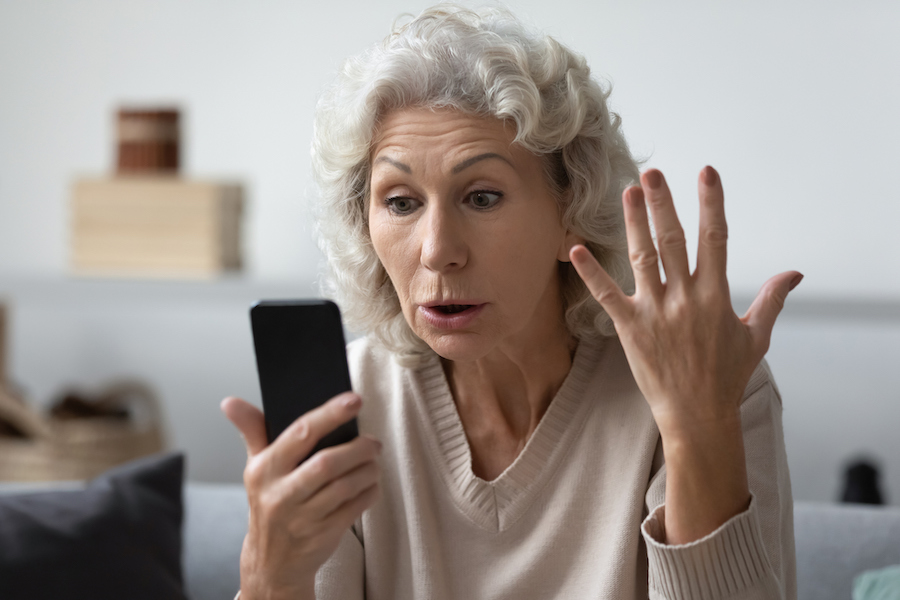Booking Platforms Were Designed for Desktop Computers
Back in the day, the introduction of self-service online booking was revolutionary for beauty and fitness businesses. Suddenly, clients could make appointments anytime during or after business hours. As people became increasingly comfortable interacting with businesses online, many companies saw a decrease in phone calls. Clients appreciated the convenience of online booking and business teams spent less time on the phone manually managing client appointments. However, the glory days of online booking ended some time ago.
Faster wireless networks, improved mobile technology and affordability have made smartphones ubiquitous. Many people who previously used desktop computers have become reliant on mobile devices for their daily activities. While this trend has brought many benefits, it has also had a negative impact on the usability of online booking platforms for salon and spa clients. In this blog post, we will explore the reasons behind this shift and the booking solution that best serves the beauty industry today.
As mentioned, prior to the widespread adoption of smartphones, customers accessed online booking platforms from a computer. This meant that booking tools were designed primarily for desktop use, with large screens, mouse input, and a full keyboard.
Smartphones Have Changed the Game
As more people now rely on their smartphones instead of a laptop or desktop, it has created a challenge for salons and spas that use online booking platforms. A survey by BookedIn found that 82% of clients use mobile devices to book appointments while 16% and 2% are made from desktops and tablets, respectively.
The main issue is that booking tools are much harder to use on a mobile device. Smartphones have a smaller screen, no mouse, and a touch interface that can be less precise than a mouse pointer. As a result, it can be difficult to navigate the booking process, enter all the required information, and make sure they have selected the right service and time.
Another challenge is that many online booking platforms are not optimized for mobile devices. This means that even if a guest manages to create an account, login and navigate the booking software, the platform may not display properly on their screen. This can make it difficult to read information or select the right options, which can lead to frustration and errors.
Consumers Expect a Hassle-Free Experience
In addition to these technical challenges, there is also a psychological barrier that has made online booking platforms less appealing. People use their smartphones for quick and simple tasks, such as checking the weather or sending a text message. Booking an appointment with a salon or spa, on the other hand, requires more time and effort, which can be perceived as a hassle. This is especially true for booking systems that require the guest to create an account – which the majority do. Having to remember a username and password is yet another barrier.
As a result, many clients now prefer to call the salon directly to book an appointment rather than using an online booking platform. This has not only made booking less convenient for guests, it has increased the amount of manual work for salon teams – an ironic turn of events in the age of automation and the seemingly breakneck pace of innovation.
Let’s recap the problems of an online booking process:
- Not optimized for mobile which creates a poor user experience
- Clients must remember their username and password
- Smartphone users expect hassle-free customer service
The Solution: AI-Powered SMS Booking
Because consumer preferences have changed gradually, many business owners don’t realize that their once innovative “24/7 booking” or “online booking” is now irrelevant or worse, a liability. Fortunately, there is a solution tailor-made for today’s beauty/wellness client: AI platforms that allow clients to book appointments via text message.
Texting Rules the World
Using SMS booking software is as easy as texting. When a client calls a business, the software invites them to opt into SMS. Then they receive an immediate text message with booking options. The client selects the date, time and desired service. The software registers the appointment in the business’s scheduling system and sends a confirmation text to the client. Notice that the client doesn’t need to log into an account to verify their identity. Their smartphone is their identity and they manage everything in the same text thread.
For ongoing appointments, the client can simply send a text message to the salon or spa with the requested appointment time and service. The software checks the calendar, registers the appointment and sends a confirmation text message back to the client. If the desired time isn’t available, the software presents a list of available slots. This process is quick, easy, and convenient for both the client and the business.
Video: StretchSPOT Clients Love Booking Through Text.
SMS Cancellation Ability Decrease No-Shows
The option to cancel an appointment through texting is also important. Many clients prefer interacting with a bot to cancel a booking instead of talking to a live agent on the phone. Self-service cancellation through SMS helps reduce no-shows and missed appointments, which can be a significant (and expensive) problem for many businesses in the beauty and fitness industries. Additionally, SMS booking software can be integrated with other business tools, such as payment systems, to provide a more streamlined and efficient process.
SMS Customer Service
In addition to booking appointments or class sign-ups, AI SMS platforms can answer clients’ questions about prices, services and policies. This creates a holistic customer service experience during the booking process. Our platform can fully handle up to 80% of client phone calls. “Fully handle” means the client is able to book, reschedule or cancel or get answers to their questions without a staff member needing to call them back.
AI-led SMS booking:
- Is as easy and convenient as texting
- Creates a hyper-personalized guest experience
- Reduces work for front desk teams
- Provides a competitive advantage
Texting a Booking Link is Not the Same as SMS Booking
It’s important not to confuse booking through text with the practice of sending a booking link through SMS. In this setup, the software sends the client a link in a text which requires them to leave the text thread to access the booking platform in an app or browser window. Once the guest leaves the familiar texting interface, they are back in the cumbersome world of online booking on a mobile device.
They have to remember their credentials, strain to see the booking calendar, and hope they are clicking the correct boxes. In our experience, 95% of guests opt into SMS booking but only 5% click a link to a booking system. Of the minority that click a booking link, many give up on the process and either call the business directly or seek a competing provider. If they call the business after hours, they have to leave a message and wait for a call back. This is a surefire way to frustrate the client before they even set foot in your business. Business owners should never forget that the booking experience is integral to the overall client experience – it doesn’t exist in a vacuum.
SMS Booking Key Findings
- 95% of will opt into SMS booking but only 5% will click a link to a booking system (TrueLark 2023)
- 82% of clients use mobile devices to book appointments while 16% and 2% are made from desktops and tablets, respectively. (BookedIn 2019)
- 54% of bookings that happen during working hours are made on the go. (Phorest, 2019)
SMS Booking Increases Revenue
Any tool that increases bookings and improves customer satisfaction drives revenue. From the first appointment to becoming a loyal, repeat customer, hassle-free booking and support is critical for meeting clients’ expectations. This, in turn, ensures a beauty, wellness or fitness business can compete with other providers in their area who offer similar services.
To see the leading SMS booking system in action, schedule a TrueLark demo today.



















